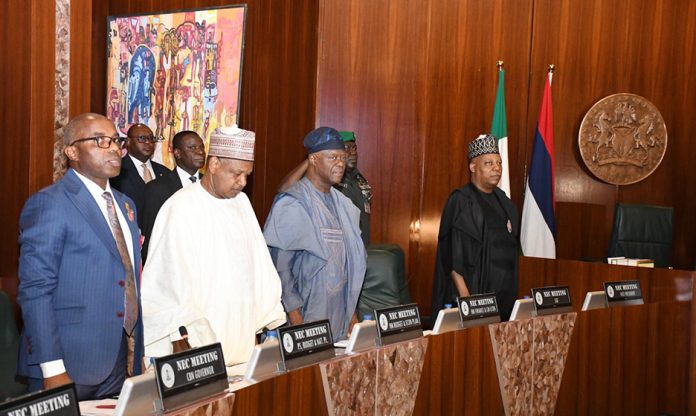
The Minister of Humanitarian Affairs and Poverty Reduction, Nentawe Yilwatda, has called for a more inclusive approach to tax reforms, focusing on better support for persons with disabilities and other vulnerable groups.
Yilwatda made this call at an Inclusive Tax Reform town hall meeting with leaders of the disability community in Abuja on Tuesday.
The event was organised by All-Rights Foundation Africa, with funding from the European Union through its Support for Democratic Governance in Nigeria programme.
The minister emphasised the need for tax relief on disability-related expenses, corporate incentives for inclusive employment, and VAT reductions on assistive devices and healthcare services to ease the financial burden on disabled individuals.
He also proposed allocating a portion of tax revenues to a national disability fund to enhance social protection for PWDs.
“Can we secure tax relief for persons with disabilities? There should be tax reductions for disability-related expenses, such as medical care and assistive devices. We must also ensure accessibility modifications for existing structures so that all buildings in Nigeria accommodate people with disabilities. Assistive devices should qualify for tax rebates, and companies that embrace inclusive employment should receive corporate incentives,” Yilwatda stated.
He further suggested reviewing VAT policies to either exempt or significantly reduce taxes on assistive technologies, mobility aids, and specialised healthcare for people with disabilities.
“Many persons with disabilities struggle to meet their daily needs, and the high cost of essential services and devices worsens their financial challenges,” he added.
The minister highlighted the significant financial burden disabled individuals face, particularly regarding medical care and the high cost of mobility aids.
He urged the government to consider tax reductions or exemptions on these expenses to alleviate financial strain, enabling persons with disabilities to live independently and participate fully in society.
Encouraging Corporate Inclusivity
Another key proposal from Yilwatda was corporate incentives to encourage businesses to employ persons with disabilities.
He suggested offering tax breaks or holidays to companies that exceed a certain threshold of disabled employees.
“This will motivate more organisations to adopt inclusive hiring practices, integrating persons with disabilities into the workforce and improving their economic standing,” he said.
Additionally, Yilwatda called for reducing VAT on disability aids and services, which are often too expensive for many disabled individuals.
He believes that lowering or exempting VAT on essential assistive technologies and specialised healthcare would make these tools and services more accessible, empowering PWDs to contribute to the economy.
Furthermore, the governorship candidate of the All Progressives Congress in Plateau State proposed that a portion of tax revenues be allocated to a national disability fund to provide long-term financial support for social protection programmes targeted at persons with disabilities.
Stakeholders Back Inclusive Tax Reforms
In his remarks, the Chairperson of the House Committee on Disability Matters, Bashiru Dawodu, stressed the importance of tax reforms in strengthening social protection for PWDs.
Dawodu acknowledged funding challenges but stated that establishing a Vulnerable Trust Fund would play a crucial role in supporting PWDs in the future.
Similarly, the Chairman of the Presidential Committee on Fiscal Policy and Tax Reforms, Taiwo Oyedele, reaffirmed the government’s commitment to a fair and inclusive tax system.
“The ongoing tax reforms aim to reduce economic burdens on vulnerable groups and ensure they are supported in their economic participation,” Oyedele said.
The Chief Executive Officer of All-Rights Foundation Africa, Jake Epelle, also expressed his support for the reforms.
He emphasised the importance of giving persons with disabilities a voice in policy discussions, commending the government’s efforts to make engagement platforms more accessible and responsive to the needs of the disabled community.
